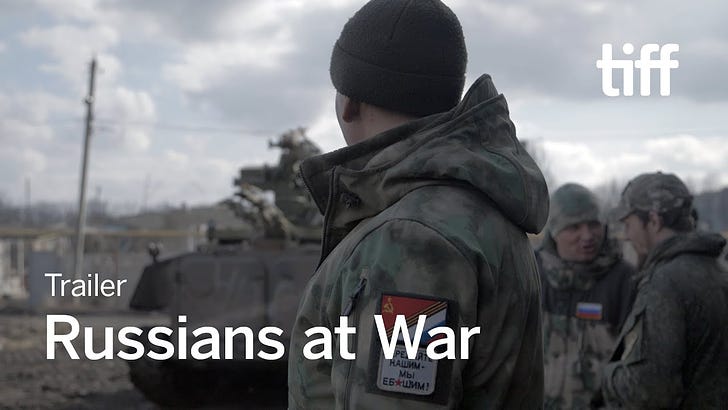BACK-END: Russian's at War.
"Russians at War," is a film the Canadian government funded but not something the Canadian government wants us to view. Perhaps that's why we need to watch the film.
At a time when Canadian legacy media outlets are mostly refusing to respond with reasonable critiques of government censorship initiatives like B-63 or Bill C-293 or to some of the more opaque domestic and international censorship initiatives being championed in places like the UN or the World Economic Forum (WEF), its good to know that legacy media is at least willing to comment on the “controversial content” at the Toronto International Film Festival (TIFF).
Keep reading with a 7-day free trial
Subscribe to Freedom Forum News to keep reading this post and get 7 days of free access to the full post archives.



